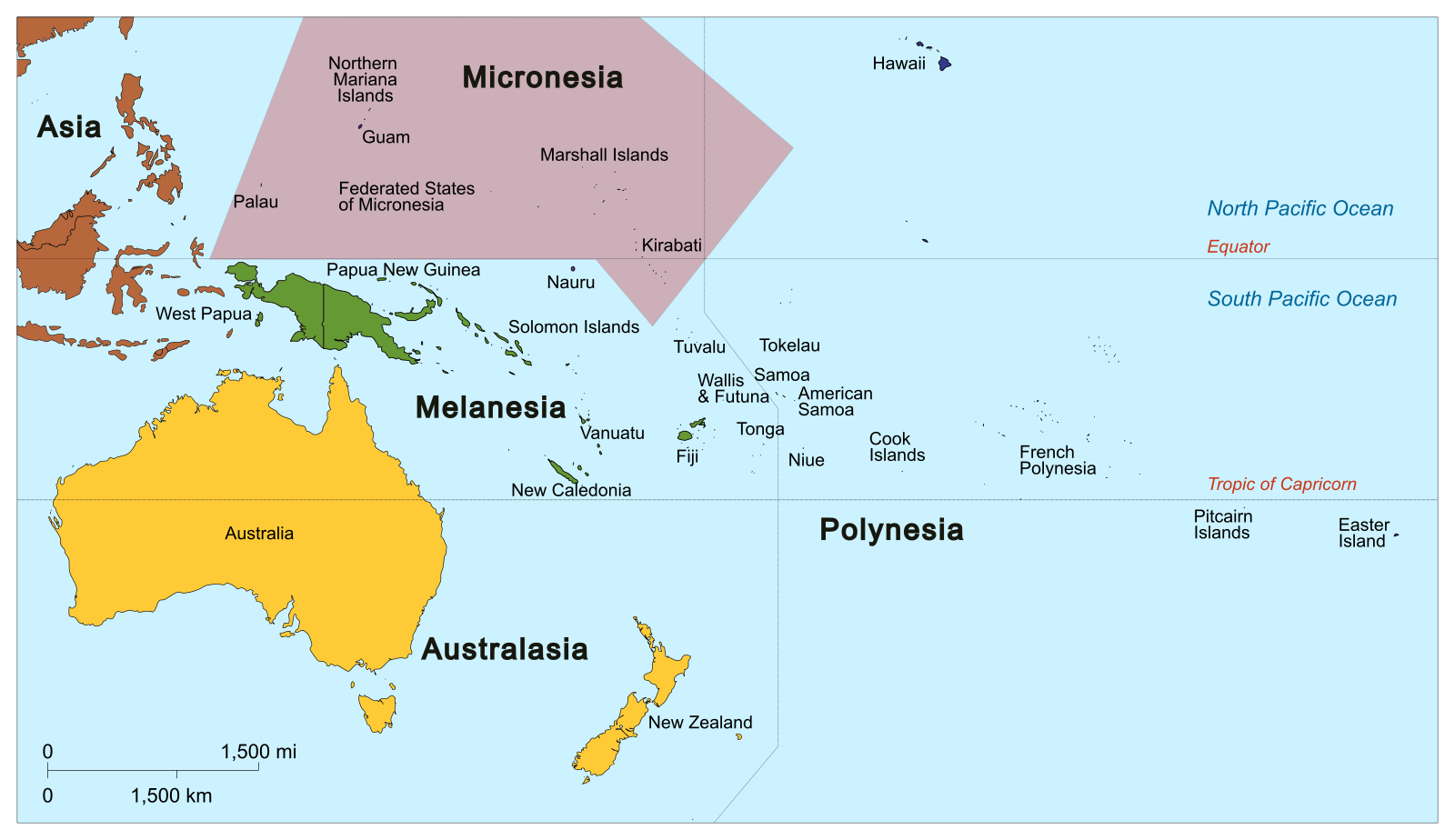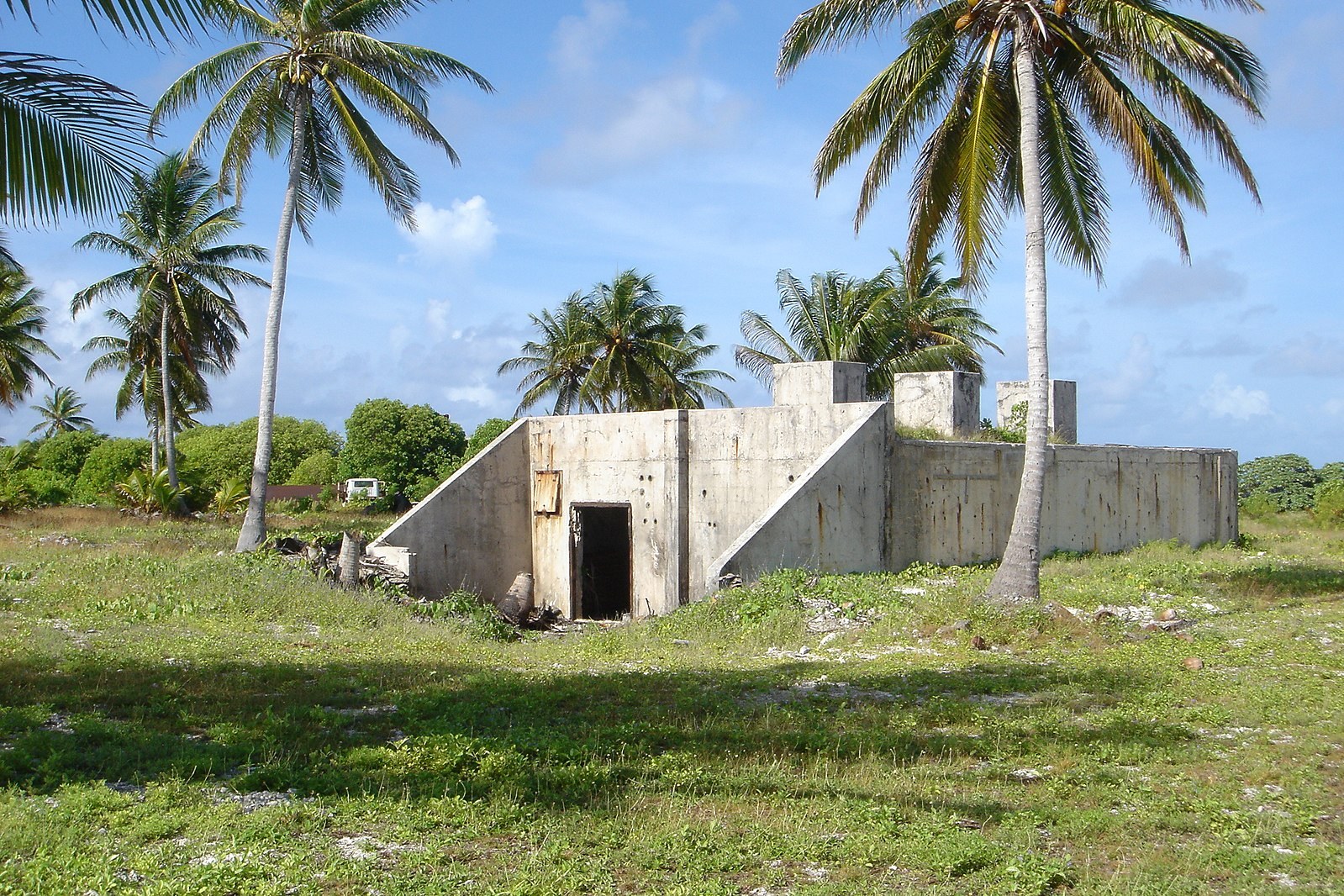As 2023 comes to a close, US and Marshall Islands delegates have renewed the final agreements necessary to dedicate its signatories federal assistance for the Marshall Islands, Palau, and the Federated States of Micronesia.
Delegates from the United States and the Republic of the Marshall Islands (RMI) met in October to renew and amend a joint agreement first signed between 1982-1983 under the Compact of Free Association (COFA). The 20-year extension would facilitate $2.3 billion towards a new trust fund and grant assistance in education, healthcare, environment, and infrastructure.
The RMI is one of three Pacific Island signatories under the COFA– agreements granting COFA states and their citizens economic assistance and the ability to live, work, and enlist in the US military, in exchange for Washington’s exclusive military use over their air and maritime space. The Republic of Palau and the Federated States of Micronesia (FSM) are the two other signatories.

Unlike Palau and the FSM, the US-RMI negotiations have actively continued for years, due to tensions regarding the US nuclear testing legacy in the region. From 1946-1958, the United States conducted 67 nuclear tests in the Marshall Islands. The combined force of the tests amounted to over 100 megatons, the equivalent of nearly 7,000 Hiroshima bombs. Of the three Northern Pacific nations with which the United States has a Compact of Free Association, only the Marshall Islands has the US nuclear legacy factor. In an interview with Giff Johnson, a long-time reporter in the Marshall Islands, he remarks that the nuclear legacy is the “biggest factor” in the RMI’s bilateral relationship with the United States.
The Biden Administration’s Commitments to Pacific Island Countries
At the Pacific Island Leaders’ Summit in Washington DC, the Biden administration set out a plan to reinvigorate US engagements in the Pacific in the context of a heightened Chinese presence in the region, announcing partnerships in climate resilience, healthcare, education, and economic development. Regarding the Marshall Islands, the administration “[acknowledged]… the nuclear legacy of the Cold War” and “[acknowledged] the United States’ commitment to addressing the Republic of the Marshall Islands’ ongoing environmental, public health concerns, and other welfare concerns.”
The extensive US-RMI negotiation process for the Compact agreements is indicative of the RMI’s evolving national priorities and issues previously unaddressed by the United States in their renewals, namely the nuclear legacy. At a public hearing by the House Natural Resources Committee in August 2023, the Marshall Islands Foreign Minister, Jack Ading reaffirmed RMI’s desire to remain in free association with the United States while cautioning that, “... unresolved problems from the nuclear test and radioactive waste is a serious irritant in our relations." And at the COFA signing in Honolulu, Mr. Ading reaffirmed that, “[the Marshallese people] have rightfully demanded that our government address [nuclear legacy hardships and challenges] in our current negotiations.”
COFA Renewal at the East-West Center in Honolulu
Delegates from both nations convened at the East-West Center in Honolulu to renew the agreements. High-profile attendees included US Special Presidential Envoy for Compact Negotiations Joseph Yun, US Department of the Interior Assistant Secretary for Insular and International Affairs Carmen G. Cantor, RMI Minister of Foreign Affairs and Trade Jack Ading, Marshall Islands President David Kabua and RMI Chief Negotiator Phillip Muller. US Congressman Ed Case and Hawaiʻi Governor Josh Green represented the state’s inseparable ties to the Pacific Islands, alongside East-West Center President Suzanne Vares-Lum.
The RMI-COFA negotiations resulted in three agreements signed between the two nations. They included (1) amended procedures for providing financial assistance, (2) a new trust fund agreement, and (3) the amended Compact agreement. Under these new agreements, Chief Negotiator Muller said that financial assistance will increase to $50 million from $28 million over 20 years. Additionally, the new trust fund mechanism will allow for RMI to use it for those “who have suffered because of US nuclear or other military activities.”
In an interview with President Vares-Lum, she expressed her delight in the negotiation’s outcome. She believes the RMI have “had their voices heard. I think they really felt like they needed to put forth a lot of these issues – the nuclear issues – that weren’t being addressed initially. Veteran's issues, access to healthcare, I feel like they certainly want to be sure that the [Marshallese] people are taken care of.”
COFA Does not Resolve the Nuclear Legacy
There was cause for celebration after the spread-out, back-and-forth negotiation process; however, the resolution of the nuclear legacy did not arrive with the renegotiated terms of the COFA agreements. In a speech at the signing ceremony, RMI President Kabua noted again the needs of Marshallese people affected by US nuclear testing. In addition, he sought further remediation for those working or living near intercontinental ballistic missile (ICBM) testing sites and rising sea levels in a nation with no land higher than six feet above sea level.

With the signing at the East-West Center, the United States is closer to maintaining the bilateral agreements for the next 20 years. The Biden administration had called for a swift approval alongside transmission of the agreements to Congress in December. However, it is unlikely that the body will approve them until after January 2024 when Congress is back in session.
Micronesia Matters for America, America Matters for Micronesia
The COFA agreements are consequential for not just the United States but also its Micronesian diaspora. More than 90,000 compact state citizens live and work in the United States, mostly in Hawaiʻi, Arkansas, Washington, California, and Guam. In fact, many of them serve in the US military at higher rates than US citizens.
Enacting the renewed COFA agreements now falls to Congress following President Biden’s approval, leaving the COFA states reliant on funding come 2024. Congress has only passed 27 bills in 2023, the lowest since the Great Depression. Without the enacted agreements, COFA states face funding shortfalls despite Congress passing a continuing resolution in November – providing temporary federal funding to prevent a government shutdown until early 2024.
Washington’s relationship with the RMI, Palau, and the FSM extend beyond securing territory in the Pacific, due to diasporic communities in Hawaiʻi and throughout the continental United States. Ensuring both residents of the COFA states and their communities abroad retain US federal and state support ensures a sustained, positive relationship amidst climate change and other forces rewriting the US-COFA political landscape.
Declan Mazur is a participant in the Young Professionals Program at the East-West Center in Washington, D.C. He holds a bachelors in Global China Studies from New York University Shanghai with a concentration in Political Science.
Juan San Nicolas is a participant in the Young Professionals Program at the East-West Center in Washington, D.C. He is a current graduate student at Georgetown University, concentrating in Science, Technology, and International Affairs.